Do you wish to create and sell online courses? Do you wish to know where to find the best online course platform for your needs? There’s no need to look any further! In this complete review, we will look at the top online course platforms available and their features, pricing, and benefits.
Online courses are a great way to learn new skills, expand your knowledge, and advance your career. Whether you want to teach or learn online, you need a reliable and user-friendly online course platform to create, host, and sell your courses.
“Choosing the best online course platform is important to growing sales. The top online course platforms can help you achieve your goals, from setting up a course website and accepting fees to posting videos and communicating with students”.
In this guide, we ranked and reviewed the 13+ best online course platforms, along with our top picks, so that you can choose the best one for you.
Whether you’re an individual instructor, a small business, or a large organization, selecting the right online course platform is critical to your success.
Online course platforms have transformed the way we learn and teach. These platforms provide a digital infrastructure that allows instructors to create, manage, and sell their online courses.
What is an Online Course Platform?

An online course platform is a software or website that allows you to create, host, and sell online courses. Online course platforms provide various tools and features to help you design, deliver, and manage your online courses.
Some of the common features of online course platforms are:
- Creation tools: It include drag-and-drop editors, templates, quizzes, assessments, certificates, etc.
- Hosting tools: These include cloud storage, video hosting, bandwidth, security, etc.
- Delivery tools: It include learning management systems (LMS), student dashboards, progress tracking, feedback mechanisms, etc.
- Marketing tools: These include landing pages, sales pages, checkout pages, coupons, discounts, email marketing, etc.
- Monetization tools: These include payment gateways, pricing options, subscriptions, memberships, etc.
- Analytics tools: These include reports, statistics, insights, etc.
Depending on your needs and preferences, you can choose from different types of online course platforms. Some of the common types are:
- All-in-one platforms: These are online course platforms that offer all of the features and tools necessary to create, host, sell, and manage your online courses. LearnWorlds, Thinkific, Teachable, Kajabi, Podia, and other all-in-one platforms are examples.
- Marketplace platforms: These are online course platforms that allow you to sell your courses alongside other instructors on their websites. They usually take a percentage of your sales as a commission or fee. Udemy, Skillshare, Coursera, and other marketplace platforms are examples.
- WordPress plugins: These are WordPress plugins that allow you to convert your website into an online course platform. You must have your own hosting as well as a domain name. LearnDash, LifterLMS, LearnPress, and other WordPress plugins are examples.
If you are unfamiliar with these online learning platforms, they are browser-based platforms that assist you in the following ways:
- Make a website for an online course (or integrate your course with an existing site).
- Create sales landing pages.
- Set a price for your course and accept payments (either one-time or in installments).
- Upload your videos, assign homework and quizzes, create interactive content, and interact with your students.
- Create membership groups.
- Organize live webinars.
While there are advantages and disadvantages to online education, the best online course platforms can ensure that both teachers and students get the most out of the online experience.
The Rise of Online Course Platforms

- Exponential Growth of Online Course Platforms:
- Online course platforms have experienced significant growth over the last decade.
- This growth has revolutionized the accessibility of education and skill development.
- Impact of Technological Advancements:
- Technological advancements have played a crucial role in facilitating the expansion of online course platforms.
- These advancements have enabled the development of diverse learning options and improved accessibility.
- Demand for Flexible Learning:
- There’s an increasing demand for flexible and self-paced learning options among learners.
- Online course platforms have capitalized on this demand by offering diverse learning formats to cater to individual preferences.
- Diversity of Course Offerings:
- The emergence of online course platforms has led to a diverse range of subjects and industries being covered.
- Learners have access to a wide array of courses, spanning various topics and sectors, to suit their interests and professional needs.
Understanding Online Course Platforms
Online course platforms have revolutionized the way we learn by providing convenient and accessible avenues for acquiring knowledge. These platforms serve as virtual classrooms, offering a wide range of courses on various subjects. From programming and business to creative skills and professional development, there’s an online course platform to cater to every interest and learning goal.
Online course platforms offer numerous benefits, including:
- Flexibility: Learn at your own pace and schedule.
- Accessibility: Access courses from anywhere with an internet connection.
- Diverse Course Selection: Explore a vast library of courses covering different topics and skill levels.
- Interactivity: Engage with instructors and fellow learners through discussion forums, live sessions, and collaborative projects.
- Cost-Effectiveness: Many platforms offer free or affordable courses compared to traditional education options.
- Certification: Earn certificates to validate your learning and enhance your credentials.
Why Choose the Best Online Course Platforms?

Online course platforms offer a range of benefits for course creators and learners alike. Here’s why you should consider using the best platforms:
- Course Creation Tools: These platforms provide intuitive and user-friendly course creation tools, allowing you to structure your content, upload videos, create assessments, and design engaging course materials without technical expertise.
- Course Marketing and Sales: The best online course platforms offer built-in marketing features, such as customizable landing pages, email campaigns, and affiliate program management, to help you promote and sell your courses effectively.
- Payment Processing: These platforms handle secure payment processing, making it convenient for learners to purchase your courses and for you to receive payments.
- Course Delivery: With these platforms, you can deliver courses in various formats, such as video lessons, interactive quizzes, downloadable resources, and discussion forums, providing an immersive and interactive learning experience.
- Analytics and Reporting: Online course platforms offer analytics and reporting features to track student progress, engagement, and course performance. These insights help you make data-driven decisions to improve your courses and enhance learner outcomes.
Factors to Consider While Choosing The Best Online Course Platform

Before diving into the details of specific platforms, it’s essential to understand the key factors to consider when choosing the best online course platform for your needs. Here are some important considerations:
Pricing and Cost Structure
Pricing is an important factor in assessing online course platforms. Some platforms start charging monthly fees, while others charge transaction fees or a percentage of course sales. Understanding the cost structure and ensuring that it aligns with your budget and revenue goals is critical.
Course Creation and Management Tools
Look for platforms with simple course creation and management tools. Content uploading, multimedia integration, quiz creation, course progress tracking, and student engagement analytics should all be included. A simple interface will make it easier to create and maintain your courses.
Customization and Branding Options
Marketing is essential for delivering a consistent and professional learning experience. Choose a platform that lets you change the course layout, branding elements, and domain name. This will assist you in maintaining a consistent brand image and increasing learner engagement.
Marketing and Sales Features
Consider platforms with built-in marketing tools and sales features to sell your courses more effectively. These may include creating landing pages, integrating email marketing, managing affiliate programs, and creating discount coupons. These tools can help you reach a larger audience and increase course sales.
Integrations and Third-Party Tools
Examine whether the platform supports integration with third-party tools and services. This can be advantageous for adding additional functionalities such as video hosting, payment gateways, customer support systems, and LMS integration.
Support and Customer Service
Choose a platform that provides reliable customer support. Look for options like live chat, email support, and knowledge bases. Good support ensures that you can quickly resolve any technical issues and receive assistance when needed.
What Are the Best Online Course Platforms?

Here are my top picks for the best online course platforms to use this year:
- Thinkific.
- Learnworlds.
- Kajabi.
- Teachable.
- Podia.
- Skool.
- Mighty Networks.
- LearnDash.
- Ruzuku.
- Academy of Mine.
- WizIQ.
1. Thinkific
Thinkific is one of the most popular and trusted online course platforms in the market.
It allows you to create beautiful and engaging courses with ease, using its drag-and-drop course builder and various templates and themes.
You can also customize your course site with your own branding, domain name, and language.
Thinkific supports various types of content, such as video, audio, text, quizzes, surveys, assignments, PDFs, and downloads.
You can also integrate Thinkific with over 1000+ apps and tools using Zapier or its native integrations.
- Thinkific is a popular and trusted online course platform.
- It has a drag-and-drop course builder and various templates and themes for creating engaging courses.
- Customization options include branding, domain name, and language.
- Thinkific supports different types of content, including video, audio, text, quizzes, surveys, assignments, PDFs, and downloads.
- Integration with over 1000+ apps and tools is possible using Zapier or native integrations.
- Marketing and sales features are available, such as coupons, bundles, memberships, subscriptions, affiliates, upsells, landing pages, and email campaigns.
- Payments can be accepted from students using Stripe or PayPal in over 100 currencies.
- Analytics and reports are provided to track course performance and student progress.
Key Features:
- Create courses that sell: These platforms allows you to easily package and present your expertise to share with students, on their schedule and off yours. You can use quizzes, assignments, drip scheduling, live lessons and more to create engaging and effective courses.
- Engage with communities: You can build your business with a collaborative learning experience created and controlled by you. You can create community spaces and notifications to interact with your students and foster a sense of belonging.
- Offer memberships that matter: Online course platform can earn recurring revenue with customized learning experiences available exclusively to paying subscribers. You can create, manage, and monetize memberships with Thinkific.
- Customize every touchpoint: You can own the entire experience across your learning products and sales pages to convert the curious into customers. You can control your pricing, revenue, learning product data, and the look and feel of your content.
- Integrate with trusted tools: It allows you to sync with the learning and marketing tools you already know and trust to create an even more powerful business. Thinkific has an app store that makes it simple to integrate with tools like Mailchimp, Zapier, Shopify, Stripe, Google Analytics and more.
- Learn from detailed analytics: You can get a deeper understanding of your student’s behavior and interests to fine-tune your content, optimize the user experience, and focus your marketing efforts.
Pros:
- Thinkific has a free plan that allows you to create up to 3 courses and host unlimited students.
- It has a generous 30-day refund policy for paid plans.
- Thinkific has a responsive and helpful customer support team that is available 24/7 via email or phone.
- It has a large and active community of instructors who share tips and resources on its blog, podcast, webinars, Facebook group, and online events.
Cons:
- Thinkific does not offer live chat support or phone support on its free plan.
- It does not have a built-in email marketing tool or CRM system.
- The platform does not have advanced quiz features such as randomization or question banks.
- It does not have a native mobile app for students or instructors.
Pricing:
- Free: $0/month
- Basic: $49/month
- Pro: $99/month
- Premier: $499/month
You can also get a 20% discount if you pay annually.
Thinkific also offers custom plans for enterprises or high-volume businesses.
💡 Related guide: 13 Best AI Tools for Affiliate Marketing in 2024
2. Learnworlds
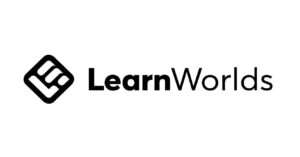
Learnworlds is another popular and trusted online course platform that allows you to create engaging and interactive courses with ease.
It has a powerful course builder that lets you add various types of content such as video, audio, text, quizzes, assignments, certificates, ebooks, and more.
- Learnworlds has a powerful course builder that supports various content types like video, audio, text, quizzes, assignments, certificates, ebooks, etc.
- Gamification elements such as badges, points, and leaderboards can be added to motivate students.
- SCORM, xAPI, and HTML5 content are supported for more advanced courses.
- Customization options include branding, domain name, and language. Templates, themes, and a page builder are available for creating landing pages, sales pages, and checkout pages.
- Integration with over 1000 apps and tools is possible using Zapier or native integrations.
- Marketing and sales features include coupons, bundles, memberships, subscriptions, affiliates, upsells, and webinars.
- Payments can be accepted from students using Stripe, PayPal, or Shopify in over 130 currencies.
- Analytics and reports are provided to track course performance and student progress.
Key features:

- Create interactive courses: LearnWorlds’ SCORM-compliant course builder to create courses with interactive videos, ebooks, quizzes, certificates, surveys, and more. You can also use live sessions, assignments, and communities to enhance the learning experience.
- Customize your website: It’s drag and drop page builder can be used to create beautiful and responsive websites for your online school. You can choose from hundreds of templates or customize your own with HTML/CSS editing.
- Sell your courses: You can use LearnWorlds’ powerful ecommerce engine to sell your courses, bundles, and memberships. You can set your own pricing options, such as one-time payments, subscriptions, or payment plans. You can also use coupons, promotions, upsells, cross-sells, and affiliates to boost your sales.
- Integrate with your tools: You can connect LearnWorlds with the tools you already use for marketing, analytics, customer support, and more. LearnWorlds integrates with popular tools like Mailchimp, Zapier, Stripe, PayPal, Google Analytics, Facebook Pixel, and more.
- Analyze your data: LearnWorlds’ analytics dashboard is used to track your students’ progress, completion rates, engagement levels, and feedback. You can also use advanced segmentation and reporting features to optimize your courses and marketing campaigns.
Pros:
- LearnWorlds has a 30-day free trial that allows you to test all its features and create unlimited courses and students.
- It has a built-in social network that allows you to create a community around your courses and engage with your students.
- LearnWorlds has a built-in video editor that allows you to edit, enhance, and add interactive elements to your videos.
- It has a built-in e-book creator that allows you to create and sell e-books as part of your courses or separately.
Cons:
- LearnWorlds does not have a free plan or a refund policy for paid plans.
- It charges a transaction fee of $5 per sale on its Starter plan.
- The platform does not have a native mobile app for students or instructors.
- It does not have advanced quiz features such as randomization or question banks.
Pricing:
- Starter: $29/month
- Pro Trainer: $99/month
- Learning Center: $299/month
- High Volume & Corporate: Custom pricing
You can also get a 20% discount if you pay annually. Learnworlds also offers custom plans for enterprises or high-volume businesses.
💡 Related guide: 13 Best Issue-Tracking Software
3. Kajabi
Kajabi is one of the most comprehensive and premium online course platforms in the market.
It allows you to create, host, deliver, and sell online courses, as well as other digital products such as memberships, coaching programs, podcasts, and more.
- Kajabi has a powerful course builder that supports various content types like video, audio, text, quizzes, assessments, and downloads.
- Customization options include branding, domain name, and language.
- Templates, themes, and a page builder are available for creating landing pages, sales pages, and checkout pages.
- Integration with over 1000 apps and tools is possible using Zapier or native integrations.
- Marketing and sales features include coupons, bundles, memberships, subscriptions, affiliates, upsells, and webinars.
- Payments can be accepted from students using Stripe or PayPal in over 100 currencies.
- Analytics and reports are provided to track course performance and student progress.
Key features:
- Create professional courses: Kajabi’s course builder is used to create courses with videos, quizzes, assessments, downloads, and more. You can also use live sessions, communities, and podcasts to enhance the learning experience.
- Customize your website: It’s website builder is great for creating stunning and responsive websites for your online school. You can choose from dozens of themes or customize your own with code editing. You can also use your own domain name and branding.
- Sell your courses: You can use Kajabi’s ecommerce engine to sell your courses, bundles, and memberships. You can set your own pricing options, such as one-time payments, subscriptions, or payment plans. You can also use coupons, promotions, upsells, cross-sells, and affiliates to boost your sales.
- Market your courses: Kajabi’s marketing tools are used to create and launch campaigns and funnels to attract and convert your audience. You can use landing pages, email marketing, webinars, blog posts, social media integrations, and more.
- Analyze your data: You can use Kajabi’s analytics dashboard to track your students’ progress, completion rates, engagement levels, and feedback. You can also use advanced reporting features to optimize your courses and marketing campaigns.
Pros:
- Kajabi has a 14-day free trial that allows you to test all its features and create unlimited courses and students.
- It has a built-in email marketing tool that allows you to create and send email campaigns to your leads and customers.
- The Platform has a built-in CRM system that allows you to manage your contacts, leads, customers, and sales pipeline.
- It has a native mobile app for students and instructors.
Cons:
- Kajabi does not have a free plan or a refund policy for paid plans.
- It is one of the most expensive online course platforms in the market.
- It does not support SCORM, xAPI, or HTML5 content for more advanced courses.
- It also does not have advanced quiz features such as randomization or question banks.
Pricing:
- Basic: $149/month
- Growth: $199/month
- Pro: $399/month
4. Teachable
Teachable is one of the most user-friendly and affordable online course platforms in the market.
It allows you to create beautiful and engaging courses with ease, using its drag-and-drop course builder and various templates and themes.
You can also customize your course site with your own branding, domain name, and language. Teachable supports various types of content such as video, audio, text, quizzes, surveys, assignments, certificates, and downloads.
- Teachable offers powerful marketing and sales features for growing your online course business.
- You can create coupons, bundles, memberships, subscriptions, affiliates, upsells, landing pages, email campaigns, and more.
- Accept payments from students using Stripe, PayPal, or Teachable Payments in over 130 currencies.
- Get access to analytics and reports to track course performance and student progress.
- Teachable is a platform that enables you to create, market, and sell your own online courses and coaching programs.
- Share your knowledge and skills with your audience and earn from your tutoring programs.
Key features:

- Course builder: Create courses with videos, quizzes, assessments, downloads, and more. Add live sessions, podcasts, and blogs for extra value.
- Website builder: Create stunning and responsive websites with dozens of themes or custom code. Use your own domain name and branding.
- Ecommerce engine: Sell courses, bundles, and coaching programs with flexible pricing options. Boost sales with coupons, promotions, upsells, cross-sells, and affiliates.
- Marketing tools: Create and launch campaigns and funnels with landing pages, email marketing, webinars, social media integrations, and more.
- Analytics dashboard: Track students’ progress, completion rates, engagement levels, and feedback. Optimize courses and marketing campaigns with advanced reporting features.
Pros:
- Teachable has a free plan that allows you to create up to 10 courses and host unlimited students.
- It has a 30-day refund policy for paid plans.
- Teachable also has a responsive and helpful customer support team that is available 24/7 via email or live chat.
- It has a large and active community of instructors who share tips and resources on its blog, podcast, webinars, Facebook group, and online events.
Cons:
- The platform charges a transaction fee of 5% per sale on its Free plan and 2% per sale on its Basic plan.
- It does not support SCORM, xAPI, or HTML5 content for more advanced courses.
- Teachable does not have advanced quiz features such as randomization or question banks.
- It does not have a native mobile app for students or instructors.
Pricing:
- Free: $0/month
- Basic: $39/month
- Pro: $119/month
- Business: $299/month
5. Podia
Podia is an online course platform that also allows you to sell digital downloads, memberships, coaching programs, webinars, and more.
It has a simple and intuitive course builder that lets you add various types of content such as video, audio, text, quizzes, downloads, and more.
- Podia offers powerful marketing and sales features for growing your online course business.
- Create coupons, bundles, memberships, subscriptions, affiliates, upsells, webinars, and more.
- It accept payments from students using Stripe or PayPal in over 130 currencies.
- Access analytics and reports to track course performance and student progress.
- Customize your course site with branding, domain name, and language.
- Choose from templates, themes, or use the page builder for landing pages, sales pages, and checkout pages.
- Podia is an online course platform that facilitates course creation, marketing, and sales.
- Build websites, host communities, sell digital products, offer coaching and webinars, and conduct email marketing.
- Podia offers a free platform with a monthly fee only when you start selling courses.
Key Features:

- Course creation: Podia has a simple and intuitive course builder that lets you create engaging courses with text, images, videos, quizzes, and downloads. You can also add certificates, drip content, pre-launch courses, and bundle products.
- Website builder: It helps you create a beautiful and professional website for your courses. You can customize your site with your own domain name, logo, colors, fonts, and layouts. You can also add pages, sections, menus, and widgets to your site.
- Community: Podia enables you to build a community around your courses. You can create free or paid plans for your community members and offer them access to your products, courses, and discussions. You can also post multimedia content and interact with your members via live chat.
- Digital products: It allows you to sell digital products such as e-books, templates, audio files, video files, spreadsheets, or any other file type. You can create sales pages, set prices, offer discounts, and deliver products instantly to your customers.
- Coaching and webinars: Podia lets you offer coaching and consultation services to your customers. You can book and charge for your sessions, send reminders, and manage your calendar. You can also run webinars and workshops through your PODIA site and sell tickets to your audience.
- Email marketing: It helps you grow your email list and communicate with your subscribers. You can create newsletters, campaigns, automations, and segments to send targeted messages to your audience. You can also track your email performance with analytics and reports.
Pros:
- Podia has a 14-day free trial that allows you to test all its features and create unlimited courses and students.
- It does not charge any transaction fees on any of its plans.
- Podia also has a built-in email marketing tool that allows you to create and send email campaigns to your leads and customers.
- It has a built-in live chat tool that allows you to communicate with your students and visitors in real-time.
Cons:
- Podia does not have a free plan or a refund policy for paid plans.
- It does not support SCORM, xAPI, or HTML5 content for more advanced courses.
- Podia does not have advanced quiz features such as randomization or question banks.
- It does not have a native mobile app for students or instructors.
Pricing:
- Mover: $39/month
- Shaker: $79/month
- Earthquaker: $179/month
💡 Related guide: 13 Best AI Tools for Students
6. Skool
Skool is an online course platform that focuses on creating engaging and interactive courses with gamification elements.
It has a powerful course builder that lets you add various types of content such as video, audio, text, quizzes, assignments, certificates, badges, points, and leaderboards.
Skool is a community and course-hosting platform created to incentivize interaction among students and instructors.
Sam Ovens, a well-known online entrepreneur and course creator, founded it in 2019.
It aims to provide a simple and easy-to-use platform that encourages students to engage with each other and the instructor. Skool also offers gamification and reward features to motivate students to complete their courses and achieve their goals.
- Skool offers powerful marketing and sales features for growing your online course business.
- Create coupons, bundles, memberships, subscriptions, affiliates, upsells, webinars, and more.
- Access analytics and reports to track course performance and student progress.
- Skool aims to provide a simple and easy-to-use platform for student engagement.
- Offers gamification and reward features to motivate students to complete courses.
- Customize your course site with branding, domain name, and language.
- Skool focuses on creating an engaging environment for online learning.
- Course creators can create and manage courses and communities easily.
- It provides students with a fun and rewarding way to learn and interact with others.
- Drawbacks include lack of video hosting, customization, integration, and analytics features.
Key Features:
- Course creation: Skool allows course creators to easily upload and organize their content into modules and lessons. To improve their courses, they can also include action items, transcripts, images, and downloads.
- Community creation: It helps course creators to build a loyal and engaged community around their courses. They can create events, groups, chats, polls, quizzes, leaderboards, badges, and more to foster interaction and collaboration among students.
- Visual calendar: Skool provides students with a visual calendar that shows them all their courses, events, and class times. This helps them to stay on track and manage their time effectively.
- Mobile-friendly: It is designed to work on any device and browser, so students can access their courses and community from anywhere.
Pros:
- Skool has a 14-day free trial that allows you to test all its features and create unlimited courses and students.
- It has a built-in social network that allows you to create a community around your courses and engage with your students.
- The platform also has a built-in video editor that allows you to edit, enhance, and add interactive elements to your videos.
- It has a native mobile app for students and instructors.
Cons:
- Skool does not have a free plan or a refund policy for paid plans.
- It charges a transaction fee of 3% per sale on its Starter plan.
- Skool does not support SCORM, xAPI, or HTML5 content for more advanced courses.
- It does not have advanced quiz features such as randomization or question banks.
Pricing:
- Starter: $49/month
- Pro: $99/month
- Enterprise: Custom pricing
You can also get a 20% discount if you pay annually. It also offers custom plans for enterprises or high-volume businesses.
7. Mighty Networks
Mighty Networks is an online course platform that also allows you to create online communities, memberships, coaching programs, podcasts, events, and more.
It has a simple and intuitive course builder that lets you add various types of content such as video, audio, text, quizzes, assignments, certificates, and more.
- Mighty Networks is a cultural software platform that enables hosting online courses within a branded community.
- Customize your course site with branding, domain name, and language.
- Choose from templates, themes, or use the page builder for landing pages, sales pages, and checkout pages.
- Mighty Networks offers powerful marketing and sales features for growing your online course business.
- Create coupons, bundles, memberships, subscriptions, affiliates, upsells, webinars, and more.
- It accept payments from students using Stripe or PayPal in over 130 currencies.
- The platform can access analytics and reports to track course performance and student progress.
- Add features like live events, live streaming, messaging, chat, forums, Q&A, and more to engage learners and grow your audience.
Key features:

- Mighty Networks allows you to design your courses with sections and lessons, and add different types of content such as videos, text, PDFs and embeds.
- You can customize your course layout, colors, fonts and images to match your brand identity.
- With Mighty Networks, you can offer free or paid courses, or bundle them with memberships or other offers.
- You can create dedicated course communities where your learners can interact with each other and with you.
- The platform helps you to track your course analytics and see how your learners are progressing and engaging with your content.
Pros:
- Mighty Networks has a free plan that allows you to create up to 3 courses and host unlimited students.
- It has a built-in social network that allows you to create a community around your courses and engage with your students.
- The platform has a built-in live streaming tool that allows you to host live events and webinars for your students.
- It has a native mobile app for students and instructors.
Cons:
- Mighty Networks charges a transaction fee of 5% per sale on its Free plan and 3% per sale on its Community plan.
- Mighty Networks does not have advanced quiz features such as randomization or question banks.
- It does not have a built-in email marketing tool or CRM system.
Pricing:
- Free: $0/month
- Community: $28/month
- Business: $98/month
- Enterprise: Custom pricing
Get Started With Mighty Networks.
💡 Related guide: 11 Best AI Marketing Tools to Automate your Business
8. LearnDash
LearnDash is an online course platform that is designed for WordPress sites. It allows you to create advanced and interactive courses with ease, using its drag-and-drop course builder and various add-ons and plugins.
- Learndash is a WordPress plugin for creating an online learning management system (LMS).
- It allows instructors to create and deliver courses, lessons, topics, quizzes, and certificates.
- Learndash is based on instructional design principles.
- It is utilized by various organizations and individuals for learning programs.
- Users have the option to sell their courses online.
Key Features:

Learndash has many features that make it a powerful and flexible online course platform. Some of the key features are:
- Drag and drop course builder: The industry’s best course builder makes course creation simple. You can move around course design elements in an easy-to-use backend.
- Flexible pricing models: You can sell courses individually, through subscriptions, memberships, or bundles. You can also use a built-in payment system or integrate with WooCommerce for a full shopping cart experience.
- Dynamic content delivery: Learndash allows you to drip-feed lessons to your students, set prerequisites, and create learning paths for them. You can also use focus mode to remove distractions and video progression to require that a video be watched completely before proceeding.
- Advanced quizzing: You can create quizzes with eight question types, custom messages, flexible question display, and more. You can also award certificates based on quiz performance, completing a course, or both.
- Assignment management: It allows you to approve, comment, and award points on submitted assignments. You can also enable challenge exams to allow learners to test out of courses.
- Profile dashboard: Learners can quickly view courses, quiz scores, and points earned. They can also be notified automatically when they achieve a certain score or perform a specific action.
- Integrations: It integrates with the most popular apps for running a business, such as Stripe, Zapier, Mailchimp, Slack, and more. You can also use any WordPress theme or landing page builder you like.
Pros:
- Learndash offers a 30-day refund policy for paid plans.
- It supports SCORM, xAPI, and HTML5 content for more advanced courses.
- The platform has advanced quiz features such as randomization, question banks, grading, and certificates.
- It has a built-in gamification system that allows you to award badges, points, and certificates to your students.
Cons:
- Learndash does not have a free plan or a free trial for paid plans.
- It requires a WordPress site to run, which may involve additional costs and technical skills.
- Learndash does not have a built-in email marketing tool or CRM system.
- It does not have a native mobile app for students or instructors.
Pricing:
- Basic: $199/year
- Plus: $229/year
- Pro: $369/year
You can also get a 50% discount if you renew annually. LearnDash also offers custom plans for enterprises or high-volume businesses.
9. Ruzuku
Ruzuku is an online course platform that focuses on creating simple and easy-to-use courses with minimal design.
It has a basic course builder that lets you add various types of content such as video, audio, text, quizzes, assignments, downloads, and more.
- Ruzuku offers powerful marketing and sales features for growing your online course business.
- Create coupons, bundles, memberships, subscriptions, affiliates, upsells, webinars, and more.
- Access analytics and reports to track course performance and student progress.
- You can choose from various templates, themes, or use the page builder for custom landing pages, sales pages, and checkout pages.
- It allows you to customize your course site with branding, domain name, and language.
- Ruzuku is a platform that facilitates the creation and sale of online courses.
- Design and deliver courses easily, whether it’s for teaching a hobby, skill, or profession.
- Ruzuku helps you create courses that your students will love.
Key features:

- Easy-to-use interface: Ruzuku has a simple and intuitive interface that lets you create your course without any coding or technical skills. You can upload your content, add quizzes, polls, and discussions, and customize your course appearance with your logo and colors.
- Unlimited courses and students: It does not limit the number of courses you can create or the number of students you can enroll. You can also offer multiple pricing options, such as one-time payment, subscription, or payment plan.
- Integrated payment and marketing: The platform integrates with PayPal and Stripe to process your payments securely. You can also connect your course with Mailchimp, ConvertKit, or AWeber to grow your email list and send automated emails to your students.
- Student engagement and support: It helps you keep your students engaged and motivated with interactive features such as live webinars, chat rooms, forums, and feedback. You can also track your students’ progress and completion rates with analytics and reports.
- 24/7 customer support: Ruzuku offers friendly and responsive customer support via email, phone, and live chat. You can also access a library of tutorials, guides, and FAQs to help you get started and troubleshoot any issues.
Pros:
- It has a 14-day free trial that allows you to test all its features and create unlimited courses and students.
- Ruzuku is easy to use and does not require any technical skills or plugins.
- It offers unlimited courses and students with no extra fees or commissions.
- It has integrated payment and marketing tools to help you sell your course and grow your audience.
- Ruzuku has interactive features to enhance your students’ learning experience and retention.
- It has a responsive and helpful customer support team that is available 24/7 via email or phone.
- It has a built-in live streaming tool that allows you to host live events and webinars for your students.
- The platform a built-in email marketing tool that allows you to create and send email campaigns to your leads and customers.
Cons:
- It does not have a free plan or a refund policy for paid plans.
- Ruzuku does not have advanced features such as certificates, gamification, or drip content.
- It does not have a built-in landing page builder or a marketplace to showcase your course.
- Ruzuku’s pricing plans are relatively expensive compared to some other platforms.
- It charges a transaction fee of 5% per sale on its Bootstrapper plan.
Pricing:
- Bootstrapper: $74.75/month
- Up-and-Comer: $83.08/month
- University: $125/month
You can also get a 25% discount if you pay annually. Ruzuku also offers custom plans for enterprises or high-volume businesses.
10. Academy of Mine
Academy of Mine is an online course platform that is designed for professional development and training. It allows you to create customized and interactive courses with ease, using its drag-and-drop course builder and various templates and themes.
You can also customize your course site with your own branding, domain name, and language. You can choose from various templates and themes or use its page builder to create your own landing pages, sales pages, and checkout pages.
Academy of Mine also offers powerful marketing and sales features to help you grow your online course business. You can create coupons, bundles, memberships, subscriptions, affiliates, upsells, webinars, and more.
Academy of Mine also provides analytics and reports to help you track your course performance and student progress.
Key Features:

Some of the key features of Academy of Mine are:
- Self-paced eLearning courses: You can create interactive and engaging courses that consist of lessons, quizzes, assignments, and discussions. They can also include certificates of completion and track learner progress and engagement.
- Instructor-led training and webinars: Academy of Mine allows users to connect with their favorite webinar tool or host training in person. They can integrate with Zoom and MS Teams so that learners can join live virtual classrooms without leaving the LMS.
- Ecommerce: You can sell their courses directly on the LMS with a customizable storefront, or connect with their current ecommerce site like Shopify. They can accept payments with Stripe, Paypal, Authorize.net, and more.
- Reporting and analytics: The platform keep track of all user progress and learning-related activity in one platform. They can monitor scores, completions, attendance, certifications, time spent learning, and more.
- B2B customer portals: You can onboard customers into their own portals, where they can train in a white-labeled environment. Each portal is managed by an admin or multiple who are responsible for enrolling learners, reporting, and administration.
- White labeling: It helps users make their LMS truly theirs with white labeling. They can attach their logo and brand colors, use a custom domain, personalize emails, customize learner dashboards, and more.
- Integrations and API: Users can connect their LMS with their existing business apps. They can use developer-friendly API to customize the learning experience in their LMS.
Pros:
- Academy of Mine has a 30-day free trial that allows you to test all its features and create unlimited courses and students.
- Flexible and customizable platform for different learning needs and preferences.
- Robust and reliable software for handling large numbers of learners and activity.
- Excellent customer support that is responsive and helpful.
- Comprehensive features covering all aspects of eLearning creation, management, and delivery.
- It has advanced quiz features such as randomization, question banks, grading, and certificates.
- It has a built-in gamification system that allows you to award badges, points, and certificates to your students.
Cons:
- It does not have a free plan or a refund policy for paid plans.
- Higher price point compared to some other LMS platforms.
- Steep learning curve for some users, may require additional training and support.
- Limited design options for the storefront and course pages.
- Some integrations may come with additional fees or subscriptions.
- It does not have a built-in email marketing tool or CRM system.
Pricing:
- Starter: $499/month
- Growth: $699/month
- Enterprise: Custom pricing
Get Started With Academy of Mine.
💡 Related guide: 13+ Best Web Hosting Services for 2023 (Top Providers Ranked)
11. WizIQ

WizIQ is an online course platform that focuses on creating live and on-demand courses with video conferencing. It has a simple and intuitive course builder that lets you add various types of content such as video, audio, text, quizzes, assignments, certificates, and more.
WizIQ also offers powerful marketing and sales features to help you grow your online course business. You can create coupons, bundles, memberships, subscriptions, affiliates, upsells, webinars, and more. You can also accept payments from students using Stripe, PayPal, or any other payment gateway in over 130 currencies.
It also provides analytics and reports to help you track your course performance and student progress.
Key features:

- Virtual Classroom: WizIQ provides a web-based virtual classroom that supports real-time audio-video communication, interactive whiteboard, polls and quizzes, screen sharing, collaborative code editor and more. You can also record and share your live classes with your audience.
- Online Course Creation: It allows you to create and sell interactive courses that can be consumed for self-paced or live classes. You can use the built-in template to structure your course, upload your learning material in various formats, and add tests and assessments to measure learning outcomes.
- LMS: The platform offers a learning management system (LMS) that helps you manage your online learning portal. You can schedule, manage and monitor live sessions, assign roles and permissions to users, create hierarchies and groups, and extract automated reports for insights into instructor, content and learner performances.
- Ecommerce: WizIQ enables you to monetize your online courses by setting up your own branded storefront. You can accept payments in multiple currencies and modes, offer discounts and coupons, issue invoices and certificates, and track your sales and revenue.
- E-Learning Analytics: It also provides you with data-driven insights into your online learning activities. You can track the attendance, engagement, participation and performance of your learners, instructors and courses.
Pros:
- WizIQ has a built-in video conferencing tool that allows you to host live classes and webinars for your students.
- Easy to use and affordable.
- No download or installation required.
- Supports multiple languages and devices.
- Scalable and secure.
Cons:
- Limited customization options.
- No offline access or mobile app for instructors.
- Integration with third-party tools or platforms is not possible.
- No advanced features such as gamification or social learning.
Pricing:
- Basic: $25/month
- Professional: $45/month
- Enterprise: Custom pricing
💡 Related guide: 11+ Best Landing Page Builders for 2023 (Top Picks Ranked)
Specialized Online Course Platforms
In addition to the general online course platforms, there are specialized platforms tailored to specific subjects and industries. Here are a few notable examples:
- Graphic Design: Skill up in graphic design with platforms like Adobe Creative Cloud, Canva Design School, and Udemy’s Graphic Design Masterclass.
- Photography Enthusiasts: Explore platforms like KelbyOne, CreativeLive, and MasterClass, offering comprehensive photography courses taught by industry experts.
- Language Learning: Enhance your language skills with platforms such as Duolingo, Rosetta Stone, and Babbel, providing interactive language courses in multiple languages.
- Software Development: Platforms like Udacity, Coursera, and Pluralsight offer specialized courses for aspiring and experienced software developers.
- Business Management: Learn essential business management skills through platforms like Harvard Business School Online, LinkedIn Learning, and edX.
- Personal Finance: Improve your financial literacy with platforms such as Investopedia Academy, Dave Ramsey’s Financial Peace University, and Khan Academy’s Personal Finance courses.
- Health and Wellness: Mindvalley, Gaia, and Yoga International are few platforms that offer a wide range of courses for personal development, meditation, yoga, and holistic well-being.
- Music Production: Dive into music production with platforms like Soundfly, Ableton, and MasterClass, featuring courses by renowned music producers and industry professionals.
- Data Science: Platforms like DataCamp, edX, and Kaggle provide comprehensive courses and hands-on projects to develop your data science skills.
These specialized platforms cater to specific interests and industries, allowing you to acquire targeted knowledge and skills.
Start Your Educational Journey Today!

Online course platforms have transformed the way we learn, providing accessible and flexible learning opportunities for individuals worldwide. Whether you’re looking to acquire new skills, enhance your career prospects, or pursue personal interests, the right online course platform can be a game-changer.
Take the time to explore the options, compare features and pricing, and consider your specific learning goals. With the best online course platform by your side, you can unlock your full potential and achieve success in your chosen field.
Remember, continuous learning is the key to personal and professional growth. Start your educational journey today and embark on an enriching experience with the best online course platforms available.
How can I monetize my courses on online platforms?

To help you generate revenue from your courses, online course platforms provide a variety of monetization options. Here are a few common approaches:
- One-time Payments: Set a fixed price for your course and allow learners to purchase it for unlimited access.
- Subscriptions: Offer recurring monthly or yearly subscriptions that provide access to multiple courses or exclusive content.
- Tiered Pricing: Create different pricing tiers with varying levels of course access and additional benefits.
- Upsells and Bundles: Promote additional resources, coaching sessions, or bonus content as upsells to enhance the value of your courses.
- Affiliate Marketing: Partner with other relevant businesses or influencers who can promote your courses and earn a commission for referrals.
Choose a platform that supports the monetization methods that align with your business goals and target audience.
Which online course platforms offer a wide range of course categories?

Consider platforms that offer a diverse range of course options if you want to offer courses in a variety of categories. These platforms enable you to cater to various interests and target different audiences. Look for platforms that provide courses in areas such as:
- Business and Entrepreneurship
- Technology and Coding
- Arts and Crafts
- Health and Wellness
- Personal Development
- Language Learning
- Marketing and Sales
Some platforms even offer niche-specific categories, ensuring you find the right platform to showcase your expertise.
Can I track student progress and engagement on online course platforms?

Yes, most online course platforms offer analytics and reporting features to track student progress, engagement, and performance. These insights help you identify areas for improvement and assess the effectiveness of your courses. Key analytics and reporting features to consider include:
- Learner Progress Tracking: Monitor individual progress, including completed lessons, quiz scores, and course completion percentage.
- Engagement Metrics: Track engagement levels, such as average time spent on lessons, discussion forum participation, or assignment submission rates.
- Course Performance Analysis: Evaluate course performance through metrics like enrollment rates, completion rates, and student satisfaction ratings.
- Assessment Data: Access detailed assessment data to identify knowledge gaps and adjust course content accordingly.
These analytics and reporting capabilities enable data-driven decision-making and continuous course improvement.
How do online course platforms handle customer support?

Customer support is an essential aspect of online course platforms. Look for platforms that provide responsive and reliable customer support channels. Common customer support options include:
- Email Support: Platforms that offer email support ensure you can reach out to their support team with any queries or issues.
- Live Chat: Real-time chat support allows you to get immediate assistance during critical moments.
- Help Center or Knowledge Base: A comprehensive help center or knowledge base with FAQs, tutorials, and guides can help you find answers to common questions.
- Community Forums: Some platforms have active community forums where you can interact with other course creators and learners to seek advice and support.
Consider platforms that offer multiple support channels and have a reputation for providing timely and helpful assistance.
Do online course platforms offer mobile app access for learners?

Yes, many online course platforms provide mobile app access for learners, enabling them to access courses on their smartphones or tablets. Mobile apps offer convenience and flexibility, allowing learners to engage with course content anytime, anywhere. Look for platforms that offer mobile app support for both iOS and Android devices. Mobile apps should provide the following functionalities:
- Seamless Course Access: Learners should be able to browse and access course content effortlessly through the mobile app.
- Offline Access: The app should allow learners to download course materials for offline viewing, especially in areas with limited or no internet connectivity.
- Notifications and Reminders: Push notifications and reminders help learners stay engaged and up to date with course updates, deadlines, and announcements.
- Discussion Forum Access: Learners should be able to participate in course discussions and interact with fellow students through the mobile app.
Mobile app support enhances the learning experience and ensures learners can engage with your courses on the go.
Can I integrate third-party tools with online course platforms?

Yes, integration capabilities with third-party tools are crucial for seamless course management and enhanced functionality. Look for platforms that offer integrations with popular tools and services such as:
- Learning Management Systems (LMS): Integration with an LMS can streamline administrative tasks, enrollment management, and user authentication.
- Video Conferencing Software: Integration with video conferencing tools enables live virtual classrooms and interactive sessions with learners.
- Payment Gateways: Integrating with payment gateways allows secure and convenient payment processing for course purchases.
- Email Marketing Software: Integration with email marketing tools facilitates automated email campaigns, course promotions, and communication with learners.
- Content Creation Tools: Integration with content creation tools, such as slide presentations or video editing software, simplifies the course creation process.
Integrations expand the capabilities of your online course platform and enable a seamless workflow.
What are the advantages of using online course platforms over self-hosted solutions?
Using online course platforms offers several advantages over self-hosted solutions. Consider the following benefits:
- Ease of Use: Online course platforms provide user-friendly interfaces and intuitive course creation tools, making it easier for non-technical users to create and manage courses.
- Scalability: Platforms are designed to handle a growing number of learners and courses. They offer robust infrastructure and server capabilities to accommodate your expanding business needs.
- Built-in Features: Online course platforms come with built-in features like analytics, reporting, payment processing, and student management, eliminating the need for separate tools or plugins.
- Technical Support: Platforms offer customer support, troubleshooting assistance, and regular updates, saving you time and effort in managing technical aspects.
- Marketing and Promotion: Many platforms provide built-in marketing tools, such as landing page builders, affiliate program management, and SEO optimization features, to help you promote and sell your courses effectively.
Using online course platforms allows you to focus on creating valuable content and growing your online education business without the complexities of self-hosted solutions.
Benefits of Online Course Platforms

Online course platforms offers numerous advantages that make it a preferred choice for learners and course creators alike. Here are some key benefits:
- Flexibility: Online courses provide the flexibility to learn at your own pace and schedule, allowing you to balance learning with other commitments.
- Accessibility: Online courses eliminate geographical barriers, making education accessible to learners worldwide. Anyone with an internet connection can access courses from the comfort of their homes.
- Diverse Course Options: Online platforms offer a wide range of courses on various subjects, allowing learners to explore diverse areas of interest.
- Skill Development: Online courses provide opportunities for skill development and professional growth. Learners can acquire new skills or enhance existing ones to advance their careers.
- Cost-Effectiveness: Online courses are often more affordable than traditional in-person classes, as they eliminate costs associated with travel and accommodation.
- Interactive Learning: Many online platforms incorporate interactive elements such as quizzes, discussion forums, and multimedia content, fostering engaging and dynamic learning experiences.
Tips for Success in Online Courses

To maximize your learning experience and succeed in online courses, consider the following tips:
- Create a Study Schedule: Establish a regular study routine and allocate dedicated time for course-related activities.
- Stay Organized: Keep track of deadlines, assignments, and course materials to stay organized throughout the course.
- Actively Participate: Engage in discussions, ask questions, and participate in interactive activities to enhance your learning and connect with fellow learners.
- Seek Support: Reach out to instructors or fellow learners when you need clarification or assistance. Utilize support resources provided by the platform.
- Set Realistic Goals: Set achievable goals for each course and break them down into manageable tasks to stay motivated and focused.
- Practice Time Management: Effectively manage your time by prioritizing tasks, avoiding procrastination, and maintaining a healthy work-life balance.
- Utilize Supplementary Resources: Explore additional resources such as textbooks, articles, or online tutorials to deepen your understanding of the course material.
- Review and Reflect: Regularly review previous lessons and reflect on your progress to reinforce learning and identify areas for improvement.
Online Course Platforms for Specific Needs

Depending on your specific requirements, certain online course platforms may cater better to your needs. Let’s explore some platform recommendations based on different scenarios:
- Creative Skills: Skillshare and CreativeLive are excellent choices for individuals interested in developing creative skills like design, photography, writing, and more.
- Professional Development: LinkedIn Learning and Coursera offer extensive professional development courses in areas such as leadership, project management, and data analysis.
- Business and Entrepreneurship: Udemy, Teachable, and Kajabi are popular platforms for individuals looking to learn and launch their businesses or develop entrepreneurial skills.
- Coding and Technology: Platforms like Udacity, Codecademy, and Pluralsight specialize in providing coding and technology-related courses for beginners and advanced learners.
- Language Learning: Duolingo, Babbel, and Rosetta Stone are renowned platforms for learning languages with interactive lessons and gamification elements.
Consider your specific learning needs and explore platforms tailored to those areas for a more focused and targeted learning experience.
Specialized Online Course Platforms for Targeted Learning
In addition to the general-purpose online course platforms mentioned above, there are specialized platforms that cater to specific industries or skill sets. These platforms focus on delivering targeted courses and resources to help learners excel in their chosen domains. Here are a few examples:
- Coursera: Coursera is a popular platform that offers courses in partnership with leading universities and institutions. It provides a wide range of subjects, including technology, business, data science, and humanities.
- Udemy: Udemy is a marketplace for online courses, where instructors from various backgrounds can create and sell their courses. It offers a vast selection of courses on diverse topics, ranging from programming and design to personal development and music.
- LinkedIn Learning: LinkedIn Learning, formerly known as Lynda.com, is a platform that focuses on professional development and workplace skills. It offers courses taught by industry experts, covering topics such as leadership, project management, and software proficiency.
- MasterClass: MasterClass provides a unique learning experience by offering courses taught by renowned experts and celebrities. It covers a wide range of subjects, including cooking, writing, acting, music, and more.
- Codecademy: Codecademy specializes in programming and coding courses. It offers interactive lessons and coding exercises to help learners develop coding skills in languages like Python, JavaScript, HTML/CSS, and more.
These specialized platforms provide targeted resources and expertise, making them valuable options for individuals looking to develop specific skills or explore niche areas of interest.
How Online Course Platforms Ensure Course Quality

Maintaining course quality is a top priority for online course platforms to ensure a valuable learning experience for learners. Here are some common practices employed by reputable platforms:
- Peer Reviews: Online course platforms often incorporate peer reviews, allowing learners to provide feedback on the course content, structure, and overall experience. This helps maintain quality standards and enables continuous improvement.
- Instructor Credentials: Platforms often verify the credentials and expertise of instructors to ensure they are qualified to teach the subjects they offer. This helps ensure that learners receive instruction from knowledgeable professionals.
- User Ratings and Reviews: User ratings and reviews play a crucial role in assessing course quality. Learners can provide feedback and ratings based on their experience, allowing prospective students to make informed decisions.
- Quality Assurance Teams: Many platforms have dedicated quality assurance teams that review and evaluate courses for accuracy, relevance, and instructional design. This ensures that the courses meet the platform’s standards.
- Monitoring and Updates: Platforms monitor course performance, engagement, and user feedback to identify areas for improvement. Regular updates and refinements are made to course content and structure to enhance the learning experience.
While these practices contribute to maintaining course quality, it’s important to note that the learning experience can also be influenced by factors such as learner commitment, engagement, and self-discipline.
Certifications and Accreditation

One important aspect to consider when choosing an online course platform is the availability of certifications and accreditation. Certificates can validate your learning and enhance your credentials in the eyes of employers or clients. Here are some platforms that offer certification options:
- Coursera: Offers verified certificates for completing courses and even provides specialized certifications, such as Google IT Support Professional Certificate.
- edX: Provides verified certificates for completing courses and also offers MicroMasters programs and professional certificates.
- LinkedIn Learning: Offers a certificate of completion for each course you finish, which can be shared on your LinkedIn profile.
- Udacity: Provides Nanodegree programs that include industry-recognized certifications to showcase your proficiency in specific skill sets.
It’s important to note that while these certificates can enhance your resume, they may not be equivalent to traditional degrees or carry the same weight in every industry. Assess the relevance and recognition of certifications within your desired field.
Marketing and Promoting Your Online Courses

Once you’ve created your online course, effectively marketing and promoting it is crucial to attract learners. Here are some marketing strategies and features offered by online course platforms:
- Affiliate Marketing: Leverage affiliate marketing capabilities offered by platforms like Podia and Kajabi to incentivize others to promote your courses in exchange for a commission.
- Email Marketing: Integrate your courses with email marketing tools such as MailChimp or ConvertKit to build an email list, nurture leads, and send targeted course promotions.
- Sales Pages: Create compelling sales pages with detailed course descriptions, testimonials, and attractive visuals to entice potential learners.
- Coupon Codes: Offer discount codes or limited-time promotions to encourage enrollment and attract new learners.
- Audience Engagement: Foster learner engagement through discussion forums, live Q&A sessions, or community platforms like Slack or Facebook groups.
Utilize these marketing strategies and features to effectively reach your target audience, drive course enrollment, and establish your brand as a trusted authority in your field.
Payment and Revenue Sharing Models

Understanding the payment options and revenue sharing models of online course platforms is essential, especially if you plan to monetize your courses. Here are some common payment models:
- Pay per Course: Platforms like Udemy operate on a pay-per-course model, where learners pay a one-time fee for individual courses, and the platform takes a revenue share.
- Subscription-Based: Skillshare and LinkedIn Learning offer subscription-based models, where learners pay a monthly or annual fee for access to the entire course catalog. Instructors receive a portion of the revenue based on course popularity and watch time.
- Monthly or Annual Subscription for Instructors: Teachable, Thinkific, and Podia offer monthly or annual subscription plans for instructors to create and sell courses. Instructors keep the majority of the revenue generated from course sales.
Be sure to review the specific revenue sharing models and payment terms of each platform to determine the best fit for your financial goals.
Interacting with Instructors and Learners on Online Course Platforms

Online course platforms foster a sense of community and facilitate interaction between learners and instructors. These interactions can significantly enhance the learning process and provide opportunities for knowledge exchange and collaboration. Here are some common ways you can interact on online course platforms:
- Discussion Forums: Many platforms provide discussion forums where learners can ask questions, seek clarification, and engage in meaningful discussions related to the course content. Instructors and fellow learners can contribute to these discussions, offering different perspectives and insights.
- Messaging and Communication Tools: Platforms often include messaging or communication tools that allow learners to directly contact instructors for personalized support or clarification on course material. These tools facilitate one-on-one interaction and mentorship.
- Live Q&A Sessions: Some platforms organize live Q&A sessions or webinars with instructors, providing learners with the opportunity to ask questions in real-time. These sessions foster a sense of connection and enable learners to gain additional insights.
- Peer Feedback and Collaboration: Online platforms often encourage peer-to-peer feedback and collaboration. Learners can provide feedback on each other’s work, engage in group projects, or participate in virtual study groups, fostering a sense of community and mutual support.
- Office Hours and Support: Instructors may offer designated office hours or support sessions where learners can seek additional guidance or clarification. This personalized attention enhances the learning experience and encourages further engagement.
Interacting with instructors and fellow learners not only helps clarify doubts but also facilitates networking and the exchange of ideas, creating a dynamic learning environment.
Leveraging Online Course Platforms for Career Advancement
Online course platforms offer valuable opportunities for career advancement and professional growth. Here’s how you can leverage these platforms to boost your career:
- Develop In-Demand Skills: Online courses provide a convenient way to acquire in-demand skills and stay updated with industry trends. By learning skills that are highly sought after by employers, you can enhance your employability and open doors to new career opportunities.
- Earn Certifications: Many online course platforms offer certifications upon successful completion of courses. These certifications can be added to your resume or LinkedIn profile, showcasing your commitment to professional development and increasing your chances of landing job offers.
- Specialize in Your Field: Online platforms often offer specialized courses that allow you to deepen your knowledge in your chosen field. By becoming an expert in a specific area, you can differentiate yourself from others and position yourself as a valuable asset in the job market.
- Networking Opportunities: Online course platforms often have vibrant communities where you can connect with professionals from various industries. Engaging with these communities can expand your network, provide mentorship opportunities, and even lead to job referrals.
- Entrepreneurial Endeavors: If you have aspirations of starting your own business or offering your expertise as a freelancer or consultant, online course platforms can equip you with the necessary skills and knowledge. You can learn about entrepreneurship, marketing, finance, and other essential aspects of running a business.
By leveraging online course platforms strategically, you can gain a competitive edge, increase your marketability, and accelerate your career progression.
Free Online Course Platforms: Exploring Budget-Friendly Options
Online education doesn’t have to break the bank. Many online course platforms offer free courses or have budget-friendly options for learners on a tight budget. Here are some notable platforms that provide free or affordable learning opportunities:
- Coursera: Coursera offers a vast selection of free courses from top universities and institutions. Learners can access course materials and lectures for free, although certificates and advanced features may require a fee.
- edX: edX is another platform that offers free courses from renowned universities. Learners can enroll in courses at no cost and access high-quality educational content in various disciplines.
- MIT OpenCourseWare: MIT OpenCourseWare provides free access to course materials from a wide range of subjects taught at the Massachusetts Institute of Technology. Learners can explore lectures, notes, and assignments for self-study purposes.
- Khan Academy: Khan Academy offers free educational resources for learners of all ages. It covers subjects like math, science, humanities, and more. The platform provides a self-paced learning environment with interactive exercises and video lessons.
- FreeCodeCamp: FreeCodeCamp focuses on coding and offers free interactive coding tutorials and challenges. Learners can acquire programming skills in languages like HTML/CSS, JavaScript, and Python.
These platforms provide an opportunity to access high-quality education without the financial burden. While some platforms offer paid options for advanced features or certifications, the free courses can still be immensely beneficial for personal growth and learning.
Online Course Platforms vs. Traditional Education: Which is Right for You?

The choice between online course platforms and traditional education depends on individual preferences, learning style, and specific goals. Here’s a comparison to help you make an informed decision:
Online Course Platforms
- Flexibility: Online platforms offer self-paced learning, allowing you to study at your own convenience.
- Affordability: Online courses are often more cost-effective compared to traditional education, with options for free courses and budget-friendly pricing.
- Accessible: Online platforms break down geographical barriers, enabling access to courses from anywhere in the world.
- Diverse Course Offerings: Online platforms provide a wide range of subjects and courses to choose from, catering to diverse interests.
- Interactive Learning: Online courses employ multimedia elements and interactive features to enhance the learning experience.
- Career-Focused: Online courses often focus on practical skills and industry-relevant knowledge, making them suitable for career advancement and skill development.
Traditional Education
- Structured Learning: Traditional education follows a structured curriculum with in-person classes and assignments.
- Campus Experience: Traditional education offers the opportunity for face-to-face interactions, networking, and campus activities.
- Accreditation: Traditional education from accredited institutions carries weight and may be preferred in certain professions or industries.
- Rigorous Programs: Traditional education often offers comprehensive programs with a deeper academic focus.
- Personalized Guidance: Instructors in traditional education can provide immediate feedback and personalized guidance.
It’s important to consider your learning style, preferences, and specific goals when choosing between online course platforms and traditional education. Some individuals may thrive in a traditional classroom setting, while others may prefer the flexibility and accessibility of online courses.
Wrap-up
Online course platforms have revolutionized the education landscape by providing accessible, flexible, and affordable learning opportunities. Whether you’re looking to acquire new skills, advance your career, or explore personal interests, these platforms offer a wealth of courses to suit your needs.
By considering factors such as course quality, pricing, features, user experience, and community support, you can select the best online course platform that aligns with your goals. Remember to evaluate specialized platforms for targeted learning and explore free or budget-friendly options if you’re on a tight budget.
Embrace the power of online learning, unlock your potential, and embark on a transformative educational journey with the best online course platform that meets your needs and aspirations. Happy learning!
FAQ’s
1. Which online course platform offers the most features for creating and selling courses?
- There is no definitive answer to this question, as different online course platforms may offer different features that suit different needs and preferences of course creators and learners.
- However, some of the online course platforms that are often considered to have a wide range of features for creating and selling courses include LearnWorlds, Teachable, Thinkific, Kajabi, Podia, Academy of Mine and SkyPrep.
2. What is the pricing structure of the top online course platforms?
- The pricing structure of the top online course platforms varies depending on the features, functionality and scalability they offer.
- Most online course platforms have a monthly or annual subscription model that charges based on the number of courses, students or transactions. Some platforms also offer a free plan or a free trial period for testing out their features.
- Here is a table that compares the pricing plans of some of the top online course platforms as of April 2024:
| Platform | Free Plan | Basic Plan | Pro Plan | Premium Plan |
|---|---|---|---|---|
| LearnWorlds | No | $29/month | $99/month | $299/month |
| Teachable | No | $39/month | $119/month | $299/month |
| Thinkific | Yes | $49/month | $99/month | $499/month |
| Kajabi | No | $149/month | $199/month | $399/month |
| Podia | No | $39/month | $79/month | N/A |
| Academy of Mine | No | N/A | N/A | Custom quote |
| SkyPrep | No | N/A | N/A | Custom quote |
3. Which online course platform provides the best user experience and interface?
- The user experience and interface of an online course platform depends largely on the personal preference and needs of the course creator and the learner.
- However, some of the factors that may affect the user experience and interface are:
- The ease of use and navigation of the platform
- The design and customization options of the course pages and websites
- The quality and speed of the content delivery and streaming
- The responsiveness and compatibility of the platform across devices and browsers
- The availability and accessibility of support and help resources
- Based on these factors, some of the online course platforms that are often praised for their user experience and interface are LearnWorlds, Teachable, Thinkific and Podia.
4. Are there any discounts or promotions available for online course platforms?
- Yes, there are some discounts or promotions available for online course platforms from time to time. Some of the ways to find them are:
- Checking the official websites or social media pages of the platforms for any special offers or coupon codes
- Signing up for the newsletters or email lists of the platforms to receive updates on any deals or discounts
- Searching for online reviews or blogs that may have affiliate links or referral codes that can give you a discount or a bonus
5. Which online course platform is considered the best for beginners?
- Some of the online course platforms that are often recommended for beginners are Teachable, Thinkific and Podia.
6. What are the top-rated online course platforms for skill development and career growth?
- The top-rated online course platforms for skill development and career growth are the ones that offer high-quality, relevant and up-to-date courses that can help learners acquire new skills or advance their careers.
- However, some of the online course platforms that are often rated highly for skill development and career growth are Coursera, Skillshare, Udemy, Codecademy, Edx, Pluralsight and Future Learn.
7. Which online course platform offers the best support and customer service?
- The best support and customer service of an online course platform depends on the availability, responsiveness and quality of the support channels and agents that the platform provides.
- However, some of the online course platforms that are often praised for their support and customer service are LearnWorlds, Teachable, Thinkific, Kajabi and Academy of Mine.
8. Which online course platform has the most active community and peer interaction?
- The most active community and peer interaction of an online course platform depends on the number, diversity and engagement of the course creators and learners who use the platform.
- However, some of the online course platforms that are often known for having active communities and peer interactions are Skillshare, Udemy, Coursera and Future learn.
9. Are there any online course platforms that specialize in specific industries or subjects?
- Yes, there are some online course platforms that specialize in specific industries or subjects, such as:
- Codecademy, Pluralsight and Udacity for coding and programming
- DataCamp, Dataquest and Kaggle for data science and analytics
- edX, Coursera and Udemy for academic and professional courses
- Skillshare, MasterClass and CreativeLive for creative skills and hobbies
- LinkedIn Learning, Udemy for Business and Coursera for Business for business and career development
- Treehouse, General Assembly and Springboard for web development and design
- Duolingo, Babbel and Busuu for language learning
10. What are the payment options available on different online course platforms?
- The payment options available on different online course platforms depend on the platform’s features, functionality and policies.
- However, some of the common payment options that most online course platforms offer are:
- Credit cards (Visa, MasterCard, American Express, etc.)
- PayPal
- Stripe
- Apple Pay
- Google Pay
- Bank transfer
- Cryptocurrency
11. Do online course platforms offer any money-back guarantees or trial periods?
- Yes, some online course platforms offer money-back guarantees or trial periods to allow course creators or learners to test out their features and services before committing to a plan or a purchase.
- However, the terms and conditions of these offers may vary depending on the platform’s policies and procedures.
- Here are some examples of online course platforms that offer money-back guarantees or trial periods:
| Platform | Money-back Guarantee | Trial Period |
|---|---|---|
| LearnWorlds | 30 days | 30 days |
| Teachable | 30 days | 14 days |
| Thinkific | N/A | Free plan |
| Kajabi | 30 days | 14 days |
| Podia | N/A | 14 days |
| Academy of Mine | N/A | Custom demo |
| SkyPrep | N/A | 14 days |
12. Which online course platform has the most comprehensive analytics and reporting tools?
- The most comprehensive analytics and reporting tools of an online course platform depend on the type, amount and quality of the data that the platform collects, analyzes and presents to the course creators and learners.
- However, some of the online course platforms that are often recognized for having comprehensive analytics and reporting tools are LearnWorlds, Teachable, Thinkific, Kajabi and Academy of Mine.
13. What integrations and third-party tools can be used with different online course platforms?
- The integrations and third-party tools that can be used with different online course platforms depend on the platform’s compatibility, functionality and flexibility.
- However, some of the common integrations and third-party tools that most online course platforms support are:
- Email marketing tools (Mailchimp, ConvertKit, AWeber, etc.)
- CRM tools (Salesforce, HubSpot, Zoho CRM, etc.)
- Webinar tools (Zoom, Webex, GoToWebinar, etc.)
- Video hosting tools (Vimeo, Wistia, YouTube, etc.)
- E-commerce tools (Shopify, WooCommerce, SamCart, etc.)
- Social media tools (Facebook, Instagram, Twitter, etc.)
- Analytics tools (Google Analytics, Mixpanel, Hotjar, etc.)
- Automation tools (Zapier, IFTTT, Integromat, etc.)
14. Are there any online course platforms that provide marketing and sales tools to help promote courses?
- Yes, there are some online course platforms that provide marketing and sales tools to help course creators promote their courses and increase their revenue.
- However, the type and extent of these tools may vary depending on the platform’s features, functionality and pricing.
- Some of the online course platforms that provide marketing and sales tools are LearnWorlds, Teachable, Thinkific, Kajabi and Podia.



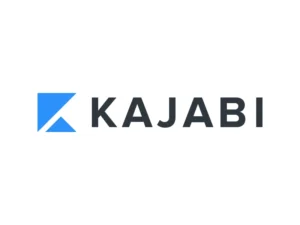

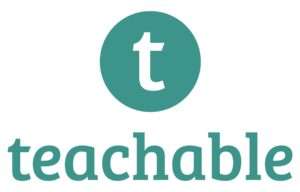



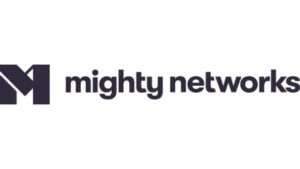






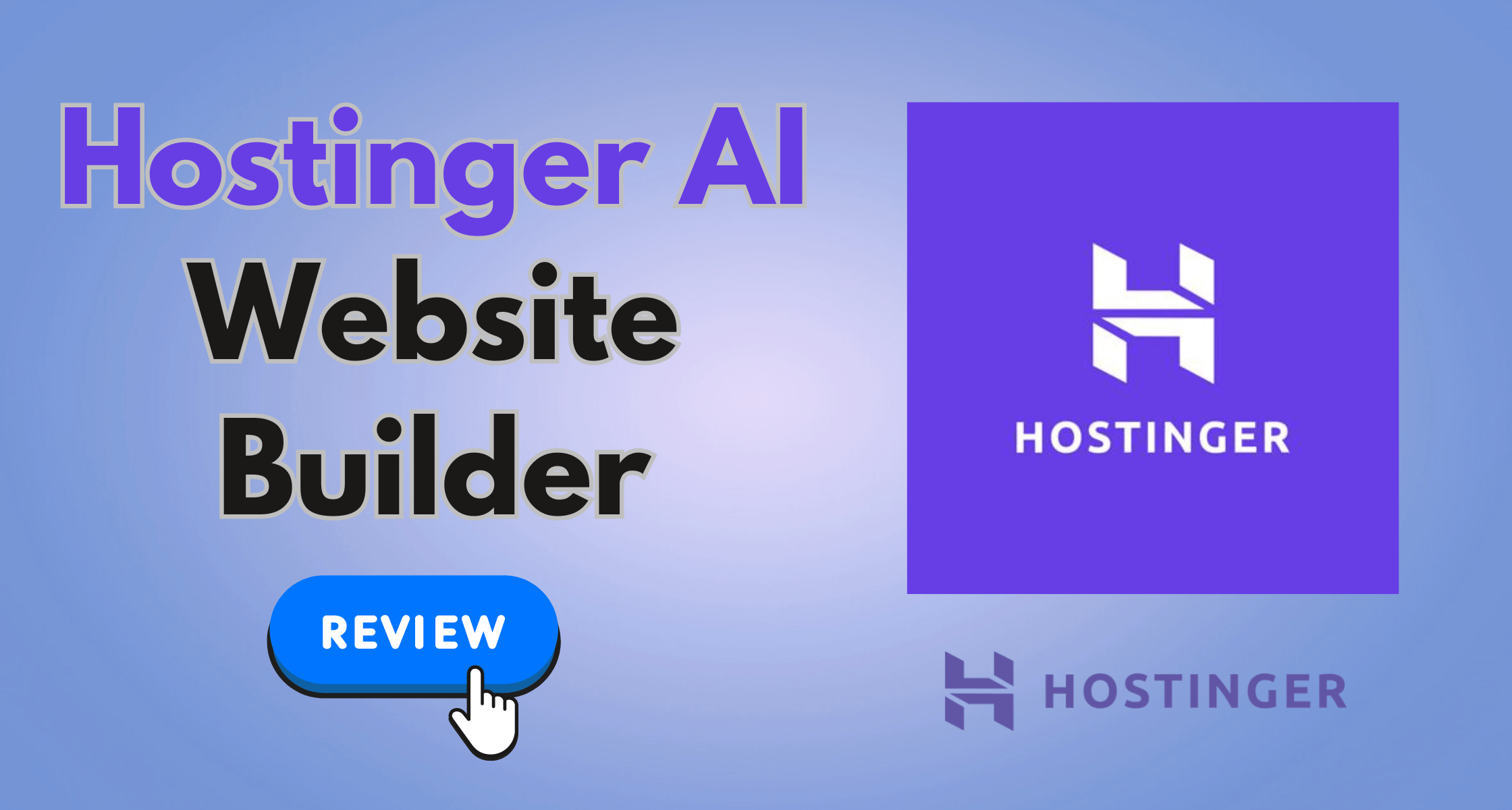

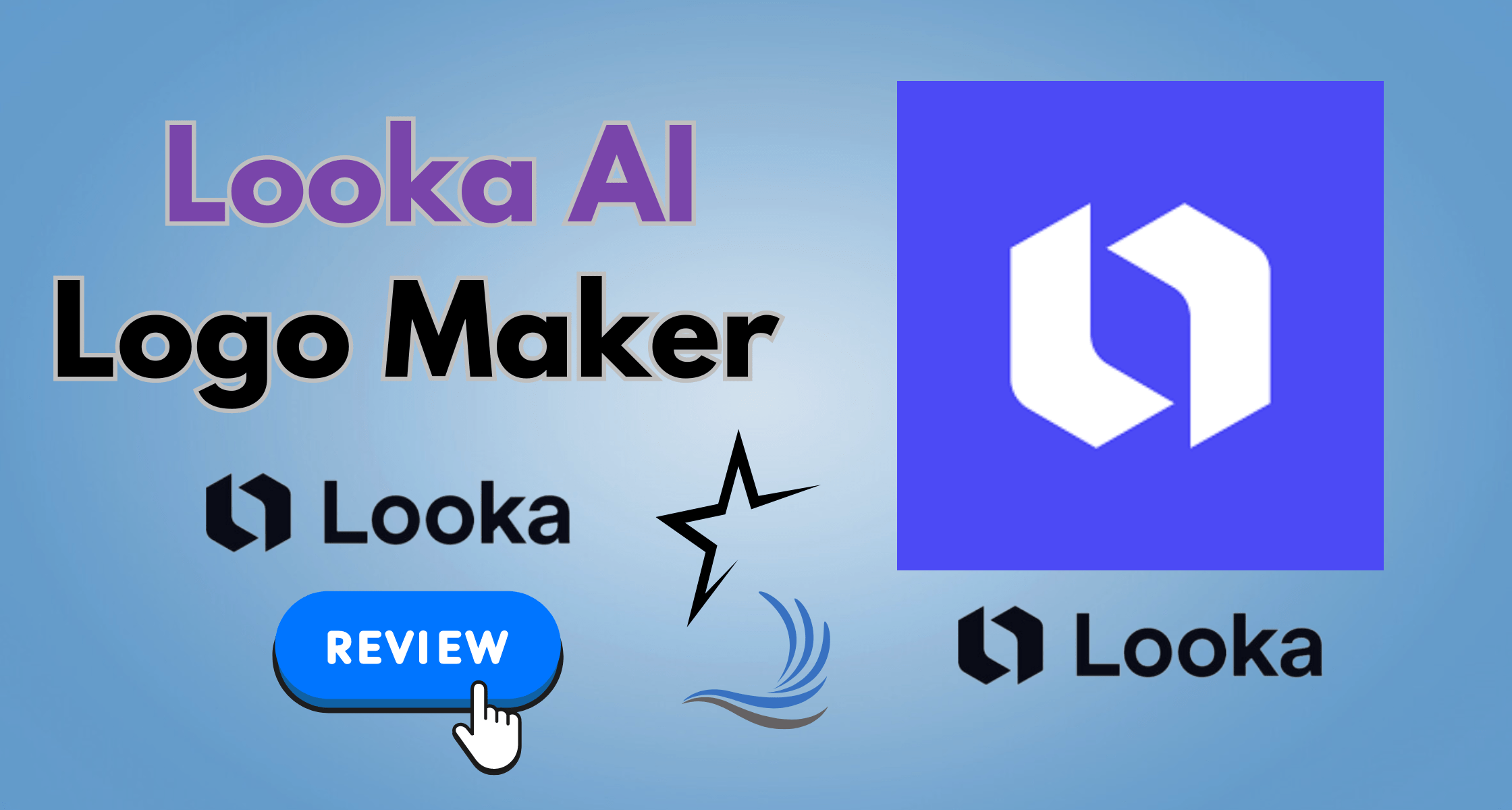



[…] Online Courses […]
[…] Online Courses […]
[…] Online Courses […]
[…] Online Courses […]
[…] Online Courses […]
[…] Online Courses […]
[…] Online Courses […]
[…] Online Courses […]
[…] Online Courses […]
[…] Online Courses […]
[…] Online Courses […]
[…] Online Courses […]
[…] Online Courses […]
[…] Online Courses […]
[…] Online Courses […]
[…] Online Courses […]
[…] Online Courses […]
[…] Online Courses […]
[…] Online Courses […]
[…] Online Courses […]
[…] Online Courses […]
[…] Online Courses […]